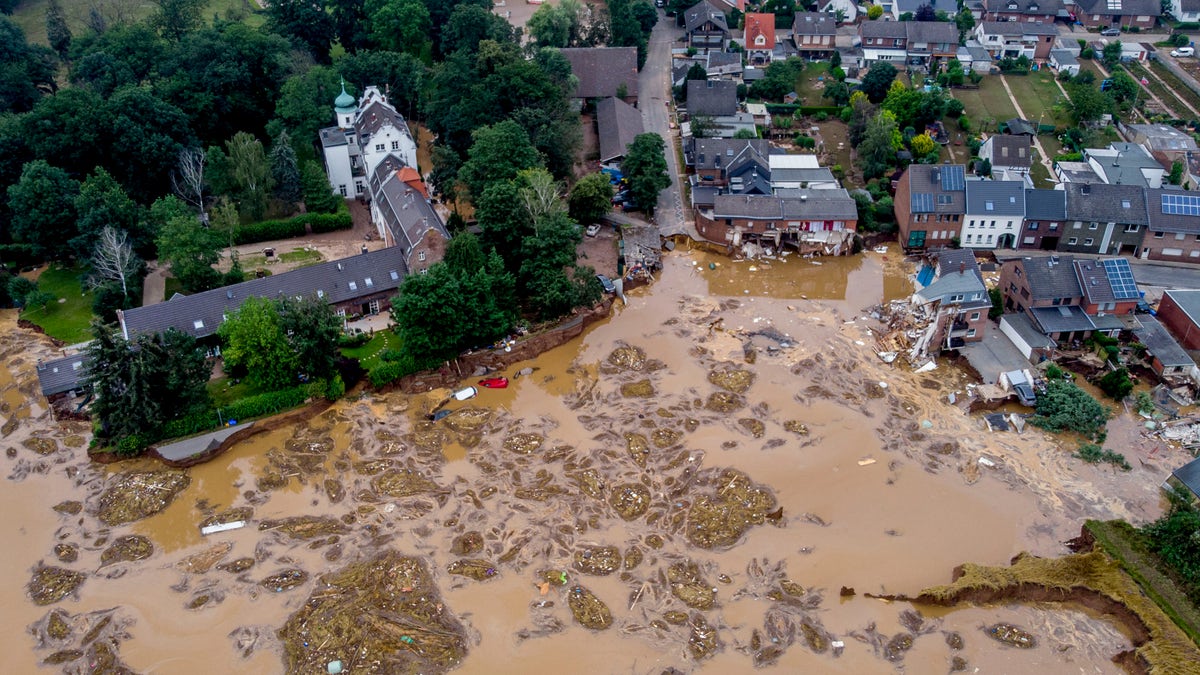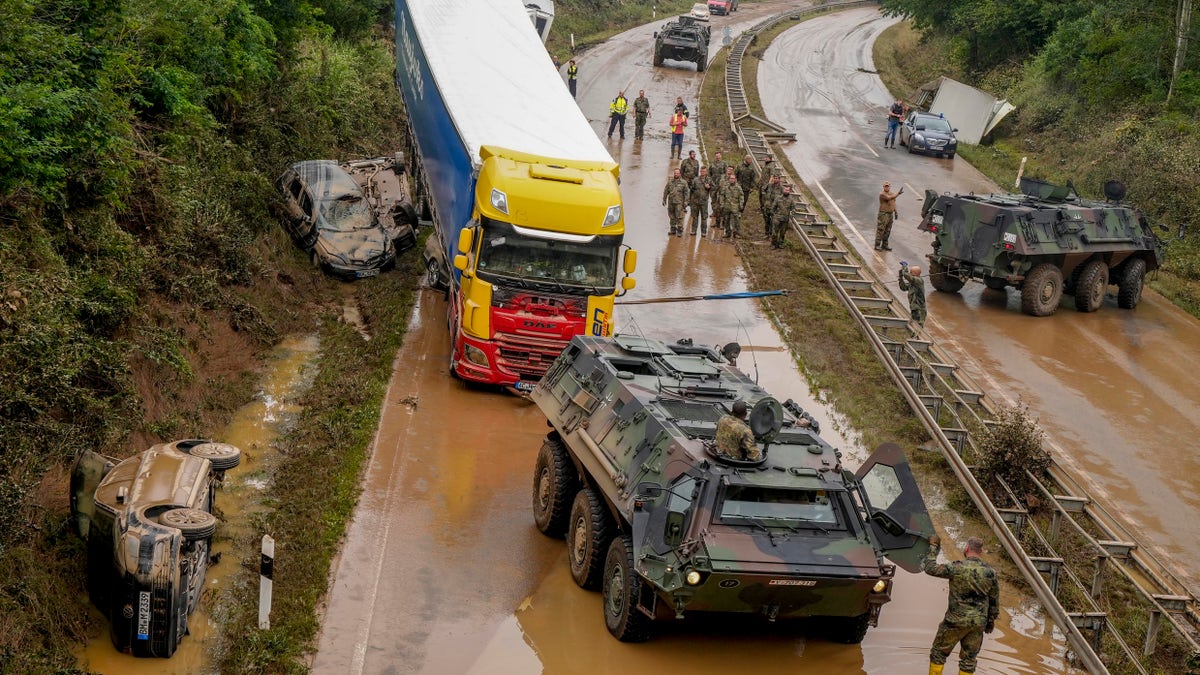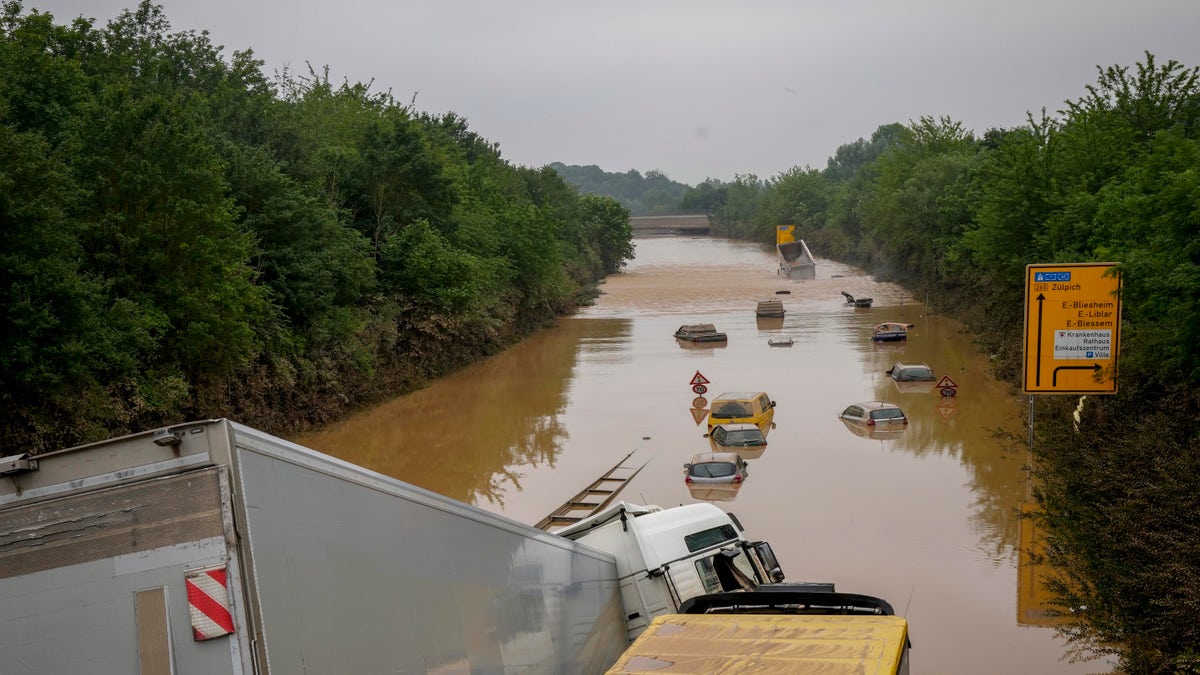Fox News Flash top headlines for July 16
Fox News Flash top headlines are here. Check out what's clicking on Foxnews.com.
Floodwaters in Germany and Belgium have killed at least 150 people as rescue operations continue into Saturday following record rainfall in Europe.
Major rivers burst their banks, flooding the surrounding areas and destroying buildings and cars in some cases. Waters started receding on Saturday, allowing rescue workers to reach more people as the full extent of damage became clear.

The damaged castle, left, is seen in Erftstadt-Blessem, Germany, Saturday, July 17, 2021. Due to strong rain falls the small Erft river went over the banks causing massive damages. (AP Photo/Michael Probst)
Some reports placed the number of missing people at around 1,300, but that number may include duplicated reports or people who cannot be reached due to disrupted road and phone access.
German President Frank-Walter Steinmeier planned to travel Saturday to Erftstadt, southwest of Cologne, where a harrowing rescue effort unfolded on Friday as people were trapped when the ground gave way and their homes collapsed. Officials feared that some people didn't manage to escape, but by Saturday morning no casualties had been confirmed.

German army soldiers work on flooded cars and a truck on a road in Erftstadt, Germany, Saturday, July 17, 2021. Due to strong rain falls the small Erft river went over the banks causing massive damages. (AP Photo/Michael Probst)
The German military utilized armored vehicles to clear away cars and trucks, some of which remained partly submerged after the flooding.
Police warned residents to remain cautious due to the risk of downed power lines; they also warned curious visitors to stay away.

Cars show up as the flood sinks on a road in Erftstadt, Germany, Saturday, July 17, 2021. Due to strong rain falls the small Erft river went over the banks causing massive damages. (AP Photo/Michael Probst)
Many residents remain without electricity and telephone services. On Friday, over 114,000 people were without power across affected regions of western Germany.
RICHARD GRENELL: GERMANY'S ANGELA MERKEL AND THE TRAGIC EVOLUTION OF THE WESTERN EUROPEAN ALLIANCE
"Some parts of Western Europe...received up to two months of rainfall in the space of two days. What made it worse is that the soils were already saturated by previous rainfall," said World Meteorological Organization spokesperson Clare Nullis.

Cars show up as the flood sinks on a road in Erftstadt, Germany, Saturday, July 17, 2021. Due to strong rain falls the small Erft river went over the banks causing massive damages. (AP Photo/Michael Probst)
Steinmeier said he was "stunned" by the devastation caused by the flooding and pledged support to affected families, cities and towns.
"The network has completely collapsed," a spokeswoman for the regional government of Cologne said. "The infrastructure has collapsed. Hospitals can't take anyone in. Nursing homes had to be evacuated.
While Germany was hit hardest by the flooding, parts of Belgium and even the Netherlands suffered as well.
CLICK HERE TO GET THE FOX NEWS APP
Train lines and roads remained blocked in most areas of eastern Belgium, but officials believe normal service can resume starting Monday.
The Associated Press contributed to this report.










































